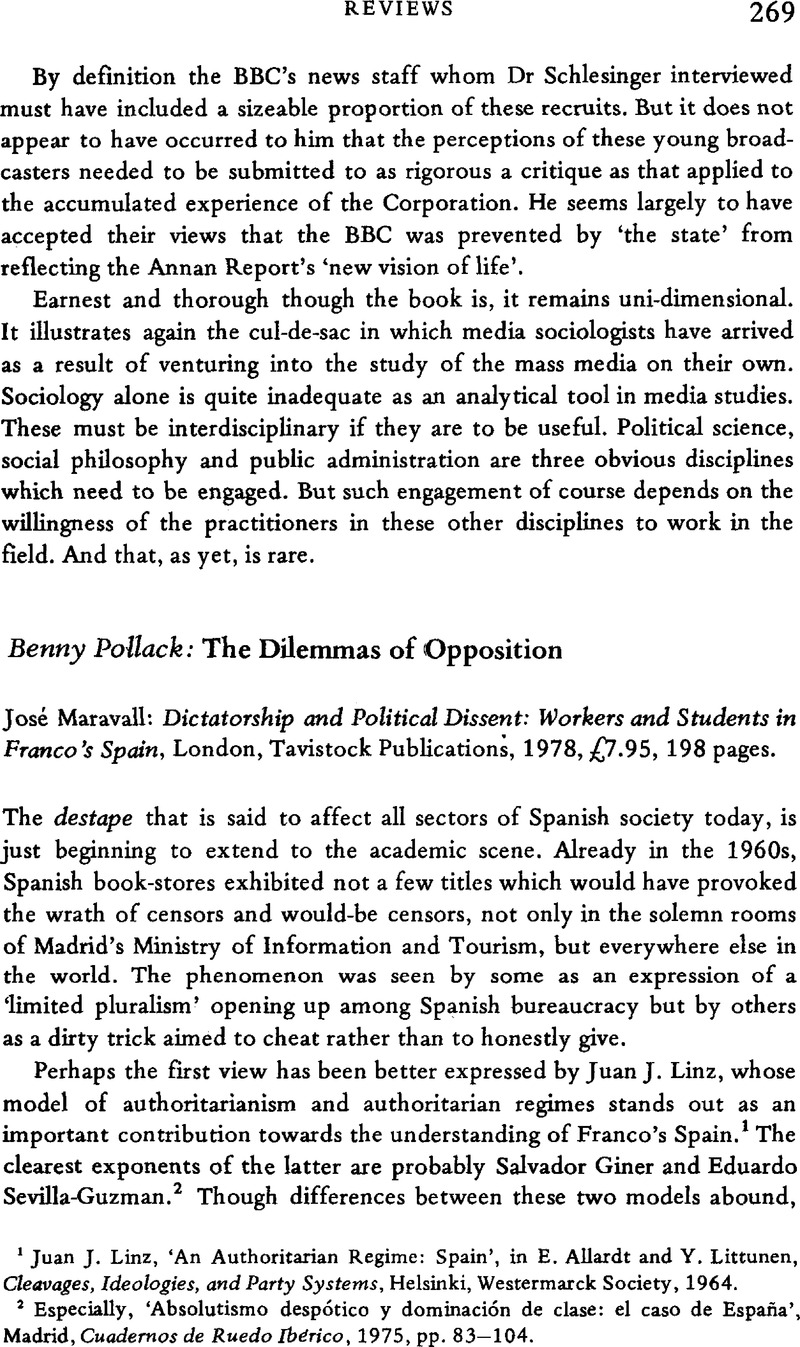No CrossRef data available.
Published online by Cambridge University Press: 28 March 2014

1 Linz, Juan J., ‘An Authoritarian Regime: Spain’, in Allardt, E. and Littunen, Y., Cleavages, Ideologies, and Party Systems, Helsinki, Westermarck Society, 1964.Google Scholar
2 Especially, ‘Absolutismo despótico y dominación de clase: el caso de Espaiia’, Madrid, Cuadernos de Ruedo Ibérico, 1975, pp. 83–104.
3 The Fascist syndrome is the greatest temptation of them all, meaning the categorization of Francoism as a ‘typical’ Fascist movement. Peculiarities are then disregarded, in an attempt to make Spanish authoritarianism fit into ‘other’ Fascist models (is.M ussolini’s Italy, Hitler’s Germany). Linz’s contributions clearly do not fall into this trap, nor do Sergio Vilar’s La Nahcrakza del franquismo, Barcelona, Ediciones Peninsual, 1977, 217 pp., or Armando de Miguel’s La Herencia del Franquismo, Madrid, Editorial Cambio 16, 1977, 250 pp. Seda‐Guzman and Giner, op. cit., also avoid this artificial and arbitrary model. The Fascist syndrome influenced academics doing research on Spanish politics in the late 1950s and during the 1960s, but their contributions have of course already been displaced by the decisively more relevant works of the 1970s.
4 Poulantzas, Nikos, Fascisme et Dictature, Paris, Maspero, 1970.Google Scholar
5 Maravall, , op. cit., p. 168.Google Scholar